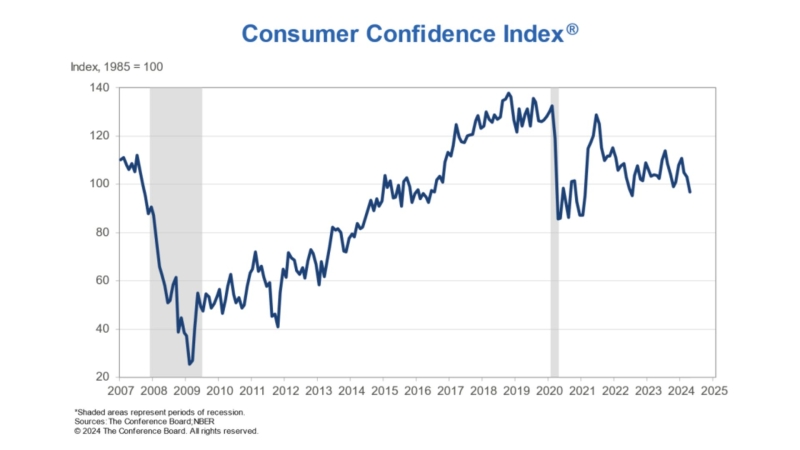Advertisement
Closing FHA Loans Through Social Media

To many mortgage loan originators (MLOs), social media is a mysterious landscape in the world of lead generation that seems impossible to penetrate. At the same time, you know that social media does impact the way people shop for homes and seek out MLOs. In this article, I will share with you a perspective on social media and Federal Housing Administration (FHA) loans, along with interviews with MLOs who are successfully using social media to close FHA loans.
But first, a few words about an “oldie but goodie” technique: Some 15-plus years ago, the most effective marketing tool an originator had was a phone. An MLO was forced to set appointments and develop relationships with referral sources in order to do business. With this model, in theory, the more referral sources an MLO connected with, the more referrals would be generated. This model worked then, and as long as there are telephones, it will always work. Why? Because it is through the relationships that are built in face-to-face meetings that trust is built, and it is because of that trust that the real estate agent will suggest that her buyer call you. Assuming the buyer trusts their agent, they will, in turn, trust you. Over time, on the condition that you maintain your relationships (this is key), your database will grow and a certain percentage of closings each year will come from your database. I know an MLO in the Montgomery, Ala. area who has used this method to build her business. In 2010, her office of three MLOs closed nearly 800 loans, and 100 percent of her business comes from referrals! Developing this type of database takes years, but it creates a very solid return year after year because of solid relationships that have developed over time.
Now … enter social media
There are two ways I have observed that MLOs use social media. One is as a tool to develop a credible image and as a place to send potential clients to learn more about the LO and to gain confidence in their expertise and credentials. The second is to use it not only as a way to create credibility, but as a primary means of generating leads through a well-designed social business strategy.
I am going to focus now on the latter; if you are considering investing your time using social media to generate FHA business, you will need to pay close attention!
First, you have to know that the use of social media can be a huge waste of time if you don’t understand how it works and have a detailed plan of execution. From what I’ve seen, most MLOs waste their time with social media and they would be more successful if they spent their time having face-to-face meetings with FHA referral sources. Because just as having face-to-face meetings is a way of developing relationships, so it is with social media; that is, the way you communicate to the consumers through social media is a means of building trust in the absence of a personal referral. Social media works well with targeting FHA borrowers because they are often first-time homebuyers and are looking for information to educate themselves on the homebuying process, so if you are providing the blog to give them the information they are seeking, then you stand to win them as clients.
I recently spoke to Tim Storm of Alpine Mortgage, Paul Dunn of Sunstreet Mortgage, and Brad Yzermans of First Priority Financial, three MLOs who have expertise in developing FHA business through social media and have learned from social media guru, Mark Madsen, the creator of MortgageDaily.tv (formerlyMyFHAMortgageBlog.com). I asked them a series of seven questions related to the topic and here are the answers to those questions.
How much time do you spend on social media sites?
Paul Dunn (PD): By social media, I am assuming you mean anything from Digg, to ActiveRain to YouTube and Facebook. I view the social media as a tool for driving traffic, and segmenting the different social media sites by their best use. However, for me, all social media has only one purpose: To drive traffic to my conversion sites. I use a fully automated system for the social bookmarking sites such as Digg, so I really only spend a few minutes a week on those. I’ll spend enough time to write a post on ActiveRain or other blog sites once or twice a month, depending on the product campaign; during a campaign I will spend a couple hours to several working within YouTube. Although Facebook can be an extremely valuable tool for a social media campaign, it is not really a necessary ingredient. But I do believe that if Facebook was your primary online presence, you could dominate with a well thought-out localized series of Fan Pages and Groups. I bet you could even get others to post your content and the maintenance would be minimal.
Tim Storm (TS): I actually don’t spend much time on Facebook or Twitter, but I do spend time blogging. I am active on ActiveRain.com. My outside blog with Activerain.com is OrangeCountyFHAExpert.com. I probably spend less time on Facebook now than before. Except now I use it as a way to stay connected to other mortgage bloggers. We bounce ideas off each other. I’m in a couple of private groups for Wordpress and mortgage blogging. I still check out Activerain every day. I write posts for my outside blog, but also read some of the technical posts. I’m always trying to learn.
Brad Yzermans (BY): Approximately 30-90 min. a day.
What sites do you use the most?
PD: I use my own network of sites. I use You Tube the most for social media.
TS: Besides my own blogs, I write on a few multi-user blogs; WannaNetwork.com and www.mortgagedaily.tv. I still learn from Mark Madsen, the master.
BY: I now contribute to three blog sites. Most of my time is focused on blogging.
How many articles/blogs do you write in a month and how much time does it take?
PD: When it’s time to kick off a new campaign, I will write an article. A 400-word article takes about 10-15 min. At this point, I’m only writing a maintenance article every couple of weeks. But when I need to make a quick campaign, I may write one a day and set to auto-publish to release them over a week. You can write them over some spare time during the weekend and schedule them to be published at a later date. When I build a new site, I will spend three to five hours creating the content.
TS: I have seven of my own blogs which I also write on. Some are tied to a specific program, like OrangeCountyHomePathMortgageProgram.com and OrangeCountyVALoans.com, while others are tied to a specific city, like PlacentiaMortgageandRealEstate.com. I plan to add more blogs this year. I time block an hour a day for writing a post. I have blocked out time for each blog in order to make sure nothing sits too long. Some blogs I write a post every other week, and some get a new post every week. The multi-user blogs are powerful because of their “Google Juice,” so I make sure to contribute solid content on those blogs that link back to my other blogs and Web sites. Some niche blogs I’ve left alone; I’d rather focus on FHA and VA than the Homepath program. I have recently started www.socaljumboloans.com, which is beginning to generate leads as well.
BY: I write approximately two to six articles per month. I feed in other articles to compliment my blog. Writing blog posts probably takes me longer than others … maybe one hour total for a complete article.
How long have you been working social media angle?
PD: I don’t think of social media quite the same way others think about it or use it. To me, it is simply a tool to drive traffic to a conversion engine. If it requires making friends, then it is too much effort and the return is most likely too low unless it can be automated. I like to think of it as creating a footprint that will drive traffic for the long term. I first started using social media back in 2006 or 2007 … not sure.
TS: I’ve been actively blogging since November of 2008, which is about when Mark Madsen’s MyFHAMortgageBlog started. I have learned quite a bit from Mark.
BY: Since June of 2009.
How many leads do you generate monthly from social media?
PD: A lot. I don’t call on Realtors. All of my business comes from online activity. My business attire is shorts and flip-flops. I have not met a borrower face-to-face in years.
TS: From blogging, I generate approximately 30-40 leads per month. Some are just gathering info, but many are very good leads.
BY: I generate about 10 lead inquiries per month … not all are eligible to qualify now, but I add them to my database and stay in touch until they are eligible.
How many loans do you close from the social media-generated leads?
PD: Enough … social media is the source for all of my closings. I have met the Realtors I work with now through my online campaigns. When you control the lead, it is much easier to choose or fire your Realtors.
TS: Through blogging, I get around nine to 10 leads per month, counting the Realtors who find me through blogging and then send leads. Many turn into pre-approvals and then it’s a matter of finding a home and getting an offer accepted. That has been the difficult part. I just keep pre-approving as many as possible. It’s a numbers game. It seems like I need 10 active pre-approvals for every deal that actually goes into escrow. I try to maintain about 50 pre-approvals. I still get Realtors who find me on the Web and then refer deals to me. That is actually my primary source of new Realtors since I rarely go out in the field or hit the weekend open houses. I have Realtors referring me deals who I’ve never met. Typically, I try to meet a good referring Realtor at least once a year. That probably sounds terrible, but if I’m out in the field, then I’m not on the computer, which is how I get leads.
BY: In 2010, I closed 13 loans directly attributed to blogging.
What system or process do you use to follow up with the leads captured through social media?
PD: Usually they come in two forms. The first, the potential customer will fill out the online application and then wait for me to call them or second, the potential customer will call me then fill out the online application. I find I have more success when they call before filling out the application because it is easy to put off that call when you are swamped, right? After they fill out the application they are sent a link to my credit agency where they can pull and pay for their credit report. When the credit report is pulled, I get an instant alert, then can pull it down and call them. Then, once they are in the system, I have an online application status and document tracking program I use that sends an automated status update every night. A good social media system is the perfect answer for The Lazy Originator, and coming soon, www.thelazyoriginator.com!
TS: After 20 years of using ACT!, I have switched to Mortgage Planner CRM. It’s an awesome Web-based CRM. It is easier to track e-mails, set up templates and track leads than what I had used before. I can quickly track how many leads I am getting from each source. It even works great as an iPhone app that allows me to easily access my entire database wherever I am from my phone.
BY: I have a high trust conversation, answer their questions and offer solutions that involve me doing their loan. If they were just calling for info, then I let them go on their way. Some call back after experiencing the wrath of some other hack LO trying to meet their quota. I get the name, e-mail and phone number from everyone who calls me. Most call rather than request info online or fill out lead capture forms. A lead from a blog caller is usually someone who has read your content, watched your videos, and decided you are the one they want to work with … people are lurking online, sometimes for months. They want to know who is the most knowledgeable and transparent LO around … someone they can depend on and someone who is real. When they read your blog, they get to know your personality. And people do business with others they know, like and trust, right? Video accomplishes this issue even better, but only if you can pull it off in front of a camera. I publish content on three different blogs, all designed to drive traffic back to my main blog site. It can take a few months for your blog content to start developing calls at first. I anticipate this to double in 2011. Blogging cost me about $400 last year. Blogging done wrong can make you look bad. I spent a lot of time reading and learning how to do it. Mark Madsen has been a big help.
Tim Storm added these tips about blogging in general:
“The key to blogging is to write good content. I see too many people who just write a sales letter for a blog article. I try to write out exactly what they searched Google for. I’m not trying to tease them to get a phone call. I lay it all out. I think a first-time homebuyer will appreciate that. If I’m searching in Google for something and I end up on a sales letter, I go back to Google and continue to search what I’m looking for. When an FHA or VA buyer does call me, they are already sold on me, my knowledge, and ability to get their loan closed. Rarely do I get a “rate shopper call.”
Folks, social media is direct marketing at its best and without the huge dollar investment. It only makes sense to put your marketing efforts where the buyers look first—online. The formula is very simple:
Quality Targeted Content + Consistency = Leads
The key is the discipline it actually takes to implement and maintaining the blog. Because of my knowledge of FHA and my writing skills, a social media guru friend of mine is encouraging me to provide a service of writing blog content for MLOs to make it easy for them. Before committing to this, I am curious how many of you would want this service and what you would pay for four articles a month for your blog. Send me an e-mail at [email protected] with your thoughts. In the meantime, develop a plan to develop a blog that will target the buyers you want to attract. The more clarity you have, the more effective your result will likely be.
Go FHA!
Jeff Mifsud is founder of Michigan-based Mortgage Seminars LLC, a former FHA underwriter with 15-plus years of experience originating FHA loans, an FHA expert for LoanToolbox.com and creator of The FHA Originator, a monthly FHA newsletter. Jeff may be reached by phone at (248) 403-8181 or visit www.MortgageSeminars.com.
About the author





